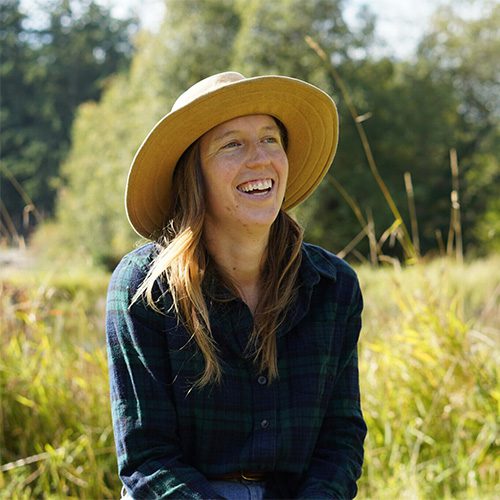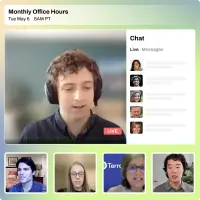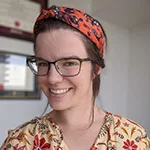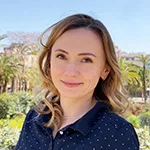Soil Health and Regenerative Farming
This two-week course gets you up to speed on soil health and the critical role it plays in addressing climate change through regenerative agriculture.


Created by —
Dr. Laney Siegner
Founder & Co-Director, Climate Farm School
Ryan Peterson
Co-Director, Climate Farm School
Introductory level
No prior farming or soil science knowledge is required, but an interest in agriculture and climate solutions is desirable
Flexible schedule
Learn according to your schedule with fully asynchronous learning
2 weeks / 4 hours per week
Expected commitment. We will help keep yourself accountable with timely check-ins
Certificate & Office-hours
NewCertificate and office-hour meetings with course creator and other learners
Course overview
This course will introduce the five principles of soil health with illustrative, innovative examples of how farmers apply these principles and are incentivized and rewarded for their efforts. We will also discuss how soil carbon stocks can be used to engage in carbon markets and carbon offsets.
You will walk away from the course with a deep understanding of soil health principle applications and the complexities of scaling regenerative agriculture practices. You will also build a strong network of peers and leaders in the space.

Skills you will learn
Soil sampling
Measuring soil carbon using the CASH method
Building healthy soil
Practicing the five principles of soil health from soil armor to minimizing soil disturbance
Scaling regenerative agriculture
Understanding challenges and opportunities in this emerging holistic practice
Living your climate principles
Gardening while applying regenerative soil health principles and connecting to your local food system
Who is this course for?
Ag tech professionals
Stand out in this field as someone with a farmer-educator network
Farm managers
Refine your operations to enhance soil health
Sustainability managers
Understand what it takes to inset emissions reductions through farms
Climate educators
Know where farm-based climate solutions fit into the larger mitigation puzzle
Course syllabus
Introduction to the principles of soil health
This course begins with an exploration of soil health principles, guided by NRCS documents that outline key practices for maintaining and improving soil quality. We will then examine the carbon sequestration opportunities that regenerative farms offer, highlighting their role in climate mitigation.
Measuring soil carbon and introduction to regenerative agriculture
Readings/viewings: Analyses of and alternatives to carbon markets; Scaling regenerative agriculture, understanding and measuring soil carbon, supporting the transition to soil health and regenerative agriculture across the food supply chain
You won't learn alone
Join monthly live office hours with the course creator and fellow learners.
- Ask your questions live
- Get direct feedback from the instructor
- Connect with peers taking the course with you
- Learn from others' questions
- Get access to the recording if you miss it
- Keep lifetime access

What you get with with this course
Free office-hours
Join monthly live sessions with the course creator and peers taking the same course.
Global community
Join our global community of 5k+ professionals from 80+ countries with 200+ expert mentors
Live events & workshops
Attend immersive events and practical workshops with top climate voices and peers
15% off other courses
As a learner, you get 15% off for all other courses on Terra.do. Including our cohort-based courses.
AI-assisted learningBeta
Cutting-edge AI-assisted learning experience with personilzed pathways and more.
What learners say about this course

Rebecca Babcock
"What I loved about this course was that while the focus was on farming in terms of producing food, I could apply the principles to my own context (creating native pollinator gardens in Ontario)! Of course, I have bigger dreams of a) spreading pollinator gardens outside of my own backyard, and b) possibly turning a plot of land into a regenerative farm."
Research Associate at PLACE Centre (Canada)

Olga Shavrina
"I loved the Soil Health and Regenerative Farming course. It was short but concentrated, and I've learned a ton! Most importantly, I understood that I can do so much myself using my own hands, knowledge, logic, and senses, by being humble and learning from nature. I discovered that there's so much more to learn and got a clear direction where to start."
Product Manager at JOB TODAY (Spain)
Meet the course creators

Dr. Laney Siegner
Founder & Co-Director, Climate Farm School
Laney recently completed her Ph.D. at the UC Berkeley Energy and Resources Group. She researches sustainable agroecological food systems and climate change education and has completed several summers of sustainable agriculture work. She has published book chapters on teaching climate change in U.S. K-12 classrooms and on conducting participatory agroecology research. When she’s not teaching or learning, she enjoys being outside for a variety of physical activities – farming, worm composting, trail running, bird watching, and swimming in the ocean

Ryan Peterson
Co-Director, Climate Farm School
Ryan Peterson is dedicated to regenerating ecosystems through food and agriculture. After beginning his career in finance, he decided to change course and study sustainability at UC Berkeley where he was captivated by the potential of food systems transformation. His master’s research focused on how policy can be used to promote agroecology in California. He went on to train as a cook at Chez Panisse before helping to launch the Culinary and Food Systems Program at The Ecology Center, a regenerative farm and ecological education center in San Juan Capistrano, CA. He has worked on farms in Maine, Northern and Southern California, and Hawaii. He spends his time collaborating with farmers.
Frequently Asked Questions
Q: Who will benefit most from this program?
Q: How do I access this course?
Q: What is the Terra.do membership?
Q: Is the course material up to date?
Q: How is the Terra.do experience different compared to others?
Q: Can I cancel anytime?
Q: Can I try for free?
Take this course
Soil Health and Regenerative Farming
One-time purchase. Lifetime access. Free live office hours.
Learn the skills and find the community to work on climate
Take expert-led courses, join a global network, and work on real climate solutions.
Carbon Accounting and Reduction
A four-week online course on the process and best practices to measure carbon footprint and establish reduction targets for businesses.
Leveraging Data and AI in Sustainability
A four-week online course focused on scaling data use to accelerate sustainability initiatives, developing a fit-for-purpose data and AI strategy...
Fundamentals of Climate Science
Learn to measure and compare the climate impacts of different greenhouse gases, clear up misconceptions about emissions, and understand what’s...
Sustainable Cloud Engineering
This five-week course covers sustainable cloud computing, focusing on eco-friendly architecture, energy-efficient deployments, and GreenOps strategies to reduce IT’s environmental...
Supply Chain Decarbonization
A four-week course on strategies to measure and reduce carbon emissions and enhance the resilience of complex supply chains in...
Sustainable AI
This four-week course equips you with tools, and strategies to mitigate AI’s climate impact, optimize AI products for sustainability, and...
